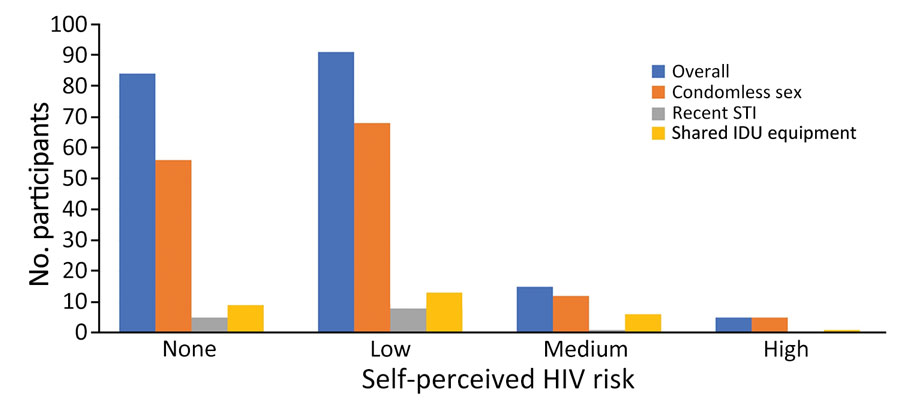Volume 30, Supplement—March 2024
SUPPLEMENT ISSUE
Prevention
HIV Risk and Interest in Preexposure Prophylaxis in Justice-Involved Persons
Figure 2

Figure 2. Self-perceived HIV risk overall and by reported risk factors among participants without HIV enrolled in study of HIV risk and interest in preexposure prophylaxis for HIV-negative justice-involved populations in Texas (Dallas and Fort Worth) and Connecticut (northeast and southeast), USA, March 2022–May 2023. Participants answered “what is your current risk for HIV acquisition (no, low, medium or high risk)?” Condomless sex and shared IDU equipment are based on baseline responses with 30-day lookback; recent STI is based on self-report at baseline for STIs diagnosed during the past year. IDU, injection drug use; STI, sexually transmitted infection.
Page created: November 30, 2023
Page updated: March 31, 2024
Page reviewed: March 31, 2024
The conclusions, findings, and opinions expressed by authors contributing to this journal do not necessarily reflect the official position of the U.S. Department of Health and Human Services, the Public Health Service, the Centers for Disease Control and Prevention, or the authors' affiliated institutions. Use of trade names is for identification only and does not imply endorsement by any of the groups named above.